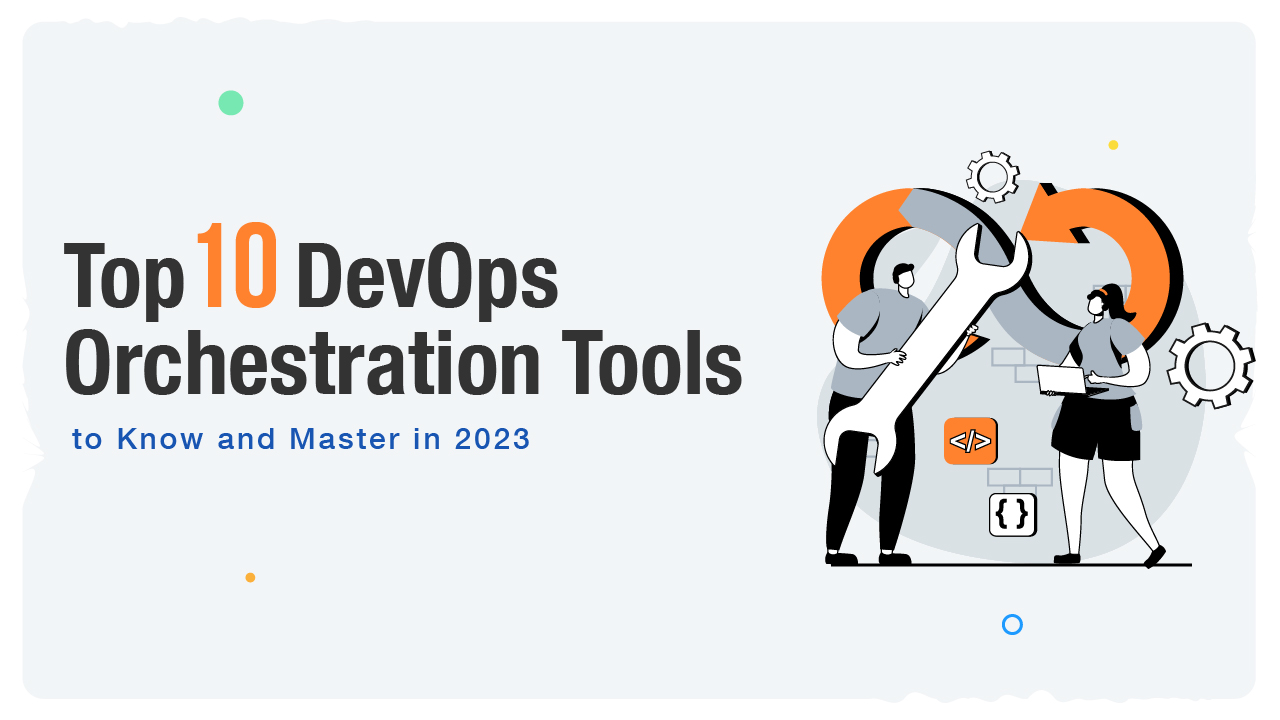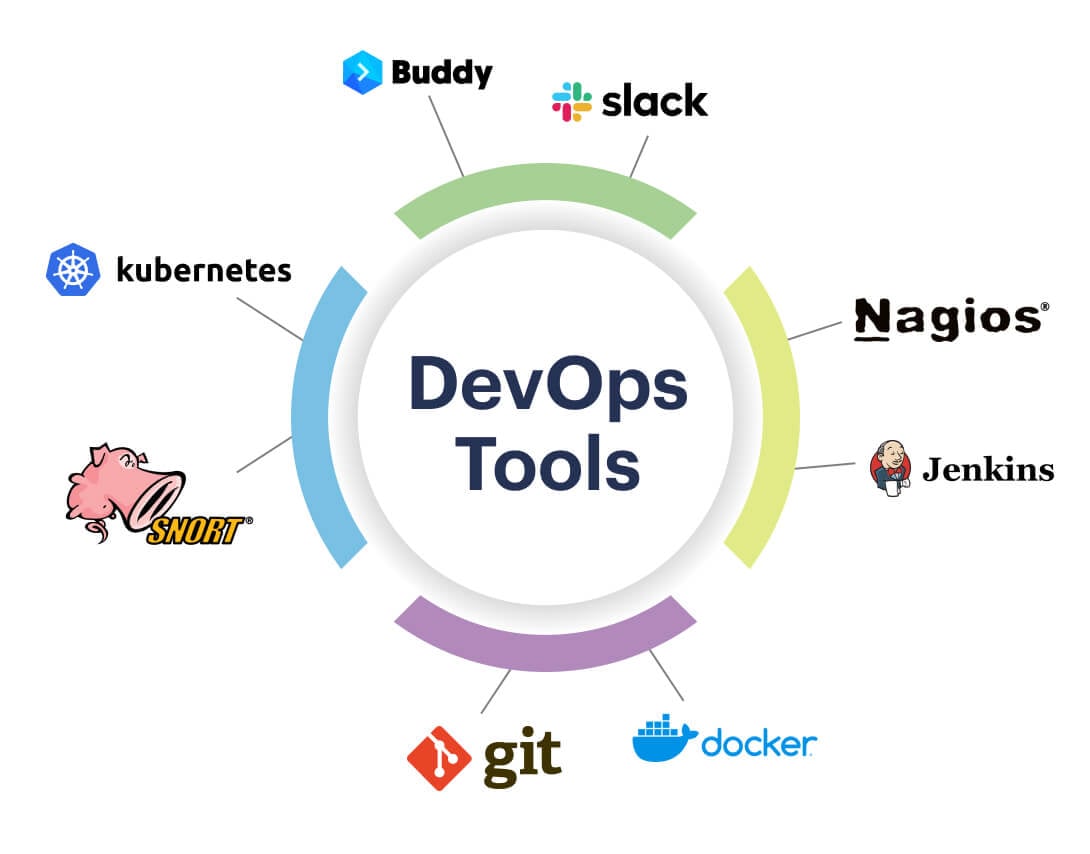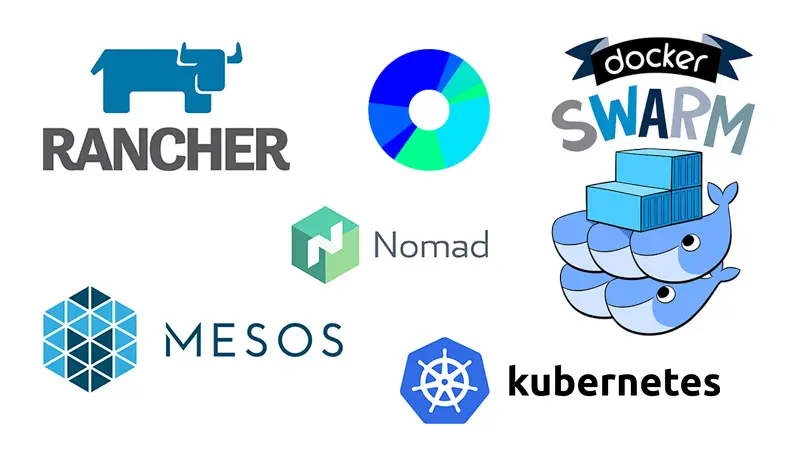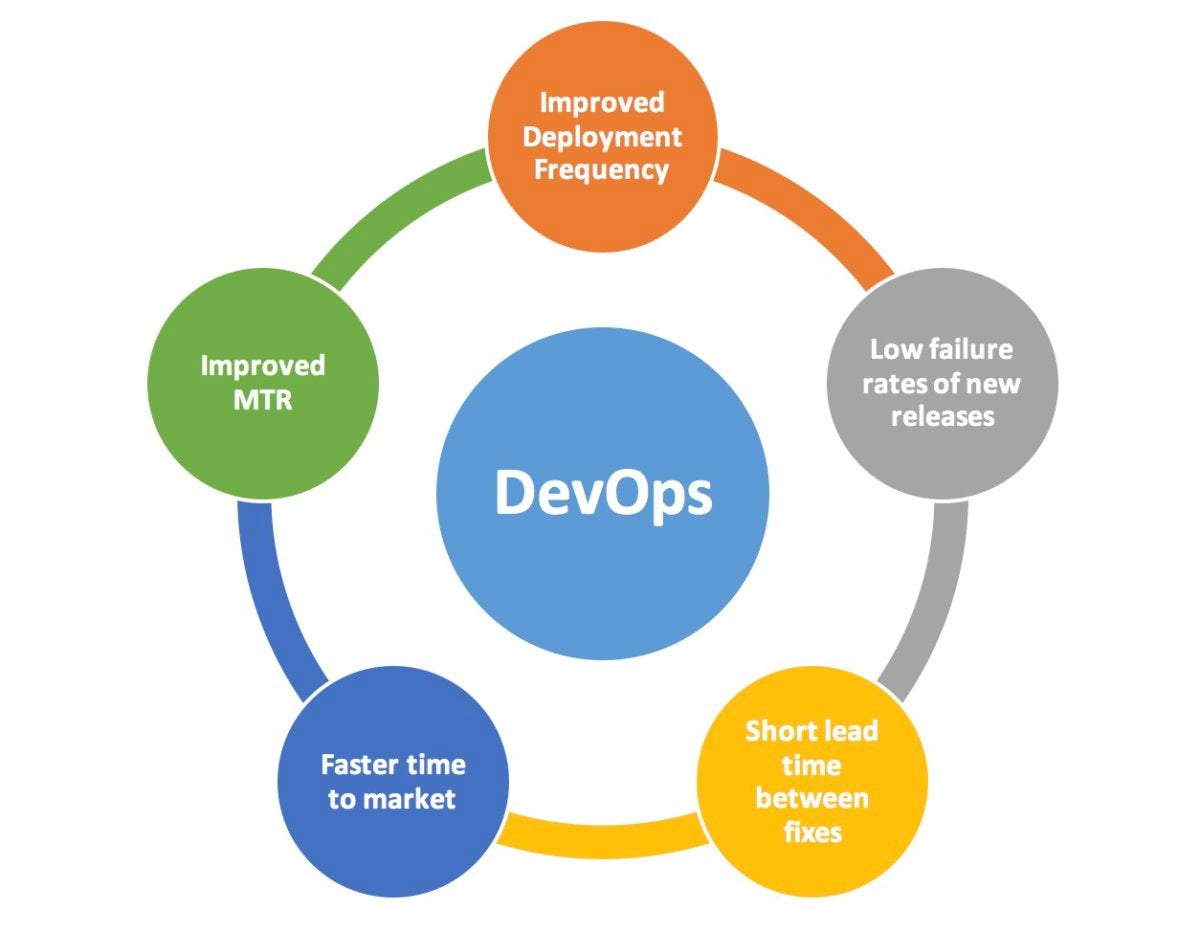Understanding DevOps Orchestration Tools
DevOps orchestration tools play a crucial role in streamlining the software development and deployment process. These tools help automate various tasks, reduce human errors, and improve collaboration between development and operations teams. By orchestrating different components of the software development lifecycle, DevOps orchestration tools enable teams to deliver high-quality software products faster and more efficiently.
At their core, DevOps orchestration tools provide a centralized platform for managing and coordinating various development and operations tasks. These tasks can range from building and testing code, deploying applications, managing infrastructure, and monitoring application performance. By automating these tasks, DevOps orchestration tools help teams save time, reduce costs, and improve overall productivity.
Moreover, DevOps orchestration tools promote a culture of collaboration and communication between development and operations teams. By breaking down silos and enabling better communication, these tools help teams work together more effectively, reducing the risk of miscommunication and ensuring that everyone is on the same page. As a result, DevOps orchestration tools have become an essential part of the modern software development landscape.
Key Features to Look for in DevOps Orchestration Tools
When choosing DevOps orchestration tools, there are several essential features to consider. These features will help ensure that the tool you select is compatible with your existing infrastructure, easy to use, scalable, and cost-effective. Here are some of the key features to look for:
- Compatibility: The DevOps orchestration tool you choose should be compatible with your existing infrastructure, including your operating system, programming languages, and other tools. This compatibility will help ensure a smooth integration and minimize the need for additional investments.
- Ease of use: The tool should be easy to use and require minimal training. A user-friendly interface and clear documentation will help your team get up to speed quickly and start using the tool effectively.
- Scalability: The tool should be scalable and able to handle increasing workloads as your business grows. This scalability will help ensure that the tool can keep up with your demands and continue to provide value over time.
- Integration: The tool should integrate seamlessly with other tools in your DevOps toolchain. This integration will help ensure a smooth workflow and minimize the need for manual intervention.
- Cost-effectiveness: The tool should be cost-effective and provide a good return on investment. This cost-effectiveness will help ensure that the tool is a worthwhile investment and provides value over the long term.
By considering these key features, you can choose a DevOps orchestration tool that meets your needs and provides value to your business. Keep in mind that the best tool for your business will depend on your specific requirements, so it’s essential to evaluate different tools and test them before making a final decision.
Popular DevOps Orchestration Tools in the Market
When it comes to DevOps orchestration tools, there are several leading options available in the market. Each tool has its unique features, benefits, and use cases. Here are some of the most popular DevOps orchestration tools to consider:
Jenkins
Jenkins is a popular open-source automation server that enables developers to build, test, and deploy their applications. It has a large community of users and contributors, making it one of the most widely used DevOps orchestration tools. Jenkins supports a wide range of plugins and integrations, making it highly customizable and flexible. However, it can be complex to set up and maintain, requiring a certain level of technical expertise.
Ansible
Ansible is a simple and agentless automation tool that enables developers to automate their infrastructure and application deployment. It is easy to set up and use, requiring minimal technical expertise. Ansible supports a wide range of modules and plugins, making it highly extensible and scalable. However, it may not be as feature-rich as other DevOps orchestration tools, such as Jenkins or Kubernetes.
Kubernetes
Kubernetes is a leading container orchestration platform that enables developers to automate their container deployment, scaling, and management. It is highly scalable and flexible, making it an ideal choice for large-scale deployments. Kubernetes supports a wide range of plugins and integrations, making it highly customizable and extensible. However, it can be complex to set up and maintain, requiring a certain level of technical expertise.
When choosing a DevOps orchestration tool, it’s essential to consider your team’s size, skills, and requirements. You should also evaluate different tools, test them, and compare their features, benefits, and use cases. By doing so, you can choose the right DevOps orchestration tool that meets your needs and provides value to your business.
Jenkins: A Comprehensive DevOps Orchestration Solution
Jenkins is a popular open-source automation server that enables developers to build, test, and deploy their applications. It has a large community of users and contributors, making it one of the most widely used DevOps orchestration tools. Jenkins supports a wide range of plugins and integrations, making it highly customizable and flexible.
Architecture
Jenkins is built on a master-slave architecture, where the master node controls the slave nodes that perform the actual work. The master node is responsible for scheduling builds, distributing work, and managing the slave nodes. The slave nodes, on the other hand, are responsible for executing the build jobs and reporting the results back to the master node.
Plugins and Integrations
Jenkins supports a wide range of plugins and integrations, making it highly extensible and customizable. Some of the most popular plugins include the Git plugin, Maven plugin, and JUnit plugin. These plugins enable developers to integrate Jenkins with their source code repositories, build tools, and testing frameworks. Jenkins also supports integrations with other DevOps tools, such as Ansible, Kubernetes, and Docker.
Pros and Cons
Jenkins is a powerful and feature-rich DevOps orchestration tool. However, it can be complex to set up and maintain, requiring a certain level of technical expertise. Additionally, Jenkins can consume significant resources, especially when running large builds or tests. On the other hand, Jenkins’ large community and extensive plugin library make it highly customizable and flexible, enabling developers to tailor it to their specific needs and requirements.
Real-life Use Cases
Jenkins is used by many organizations, from small startups to large enterprises, to automate their software development and deployment process. For example, a software development team can use Jenkins to automate their build, test, and deployment process, enabling them to deliver high-quality software products faster and more efficiently. Additionally, Jenkins can be used to automate the deployment of applications to cloud platforms, such as AWS, Azure, and Google Cloud.
Ansible: A Simple and Agentless DevOps Orchestration Tool
Ansible is an open-source automation tool that enables developers to automate their infrastructure and application deployment. It is simple, easy to use, and agentless, making it an ideal choice for organizations that want to streamline their DevOps process without incurring significant overheads.
Architecture
Ansible’s architecture is based on a master-slave model, where the master node controls the slave nodes that perform the actual work. The master node is responsible for defining the configuration and deployment tasks, while the slave nodes are responsible for executing them. Ansible’s agentless architecture means that the slave nodes do not require any additional software or agents to be installed, making it highly scalable and flexible.
Kubernetes: A Powerful Container Orchestration Platform
Kubernetes is an open-source container orchestration platform that automates the deployment, scaling, and management of containerized applications. It was originally designed by Google and is now maintained by the Cloud Native Computing Foundation. Kubernetes provides a powerful and flexible platform for managing containerized applications at scale, making it an ideal choice for organizations that want to streamline their DevOps process and improve their application delivery.
Architecture
Kubernetes’ architecture is based on a master-slave model, where the master node controls the slave nodes that run the containerized applications. The master node is responsible for managing the cluster, scheduling the pods, and maintaining the desired state of the system. The slave nodes, also known as worker nodes, are responsible for running the pods and providing the necessary resources for the containerized applications.
Features
Kubernetes provides a wide range of features that make it an ideal choice for container orchestration. Some of its key features include:
- Automated rollouts and rollbacks: Kubernetes can automatically roll out new versions of applications and roll back to previous versions if something goes wrong.
- Service discovery and load balancing: Kubernetes can automatically discover and load balance services, making it easy to build scalable and resilient applications.
- Storage orchestration: Kubernetes can automatically mount storage systems, making it easy to manage persistent data for containerized applications.
- Secret and configuration management: Kubernetes can securely manage secrets and configuration data, making it easy to deploy applications in different environments.
- Batch execution: Kubernetes can run batch jobs, making it easy to automate repetitive tasks and workflows.
Use Cases
Kubernetes is a versatile platform that can be used in a wide range of use cases. Some of its most common use cases include:
- Microservices: Kubernetes can be used to deploy and manage microservices-based applications, making it easy to scale and manage individual services.
- Continuous Integration and Continuous Deployment (CI/CD): Kubernetes can be used as part of a CI/CD pipeline, enabling organizations to automate their application delivery process.
- Big Data and Machine Learning: Kubernetes can be used to deploy and manage big data and machine learning workloads, making it easy to scale and manage these workloads in a distributed environment.
- Hybrid and Multi-Cloud: Kubernetes can be used to deploy and manage applications in a hybrid or multi-cloud environment, making it easy to move workloads between different cloud providers or on-premises environments.
Pros and Cons
Like any other technology, Kubernetes has its pros and cons. Some of its advantages include:
- Highly scalable: Kubernetes can scale applications to a large number of nodes, making it an ideal choice for organizations that need to manage large-scale applications.
- Flexible: Kubernetes provides a wide range of features and integrations, making it highly customizable and flexible.
- Open-source: Kubernetes is an open-source platform, which means that it is free to use and has a large and active community of contributors.
Some of its disadvantages include:
- Complex: Kubernetes has a steep learning curve and can be complex to set up and manage, especially for organizations that are new to containerization.
- Resource-intensive: Kubernetes requires a significant amount of resources, including CPU, memory, and storage, to run effectively.
- Maintenance: Kubernetes requires regular maintenance and updates, which can be time-consuming and require specialized skills.
Real-life Use Cases
Kubernetes is used by many organizations, from small startups to large enterprises, to automate their container orchestration process. For example, a software development team can use Kubernetes to deploy and manage their containerized applications in a scalable and resilient way. Additionally, Kubernetes can be used to deploy and manage big data and machine learning workloads, making it an ideal choice for organizations that want to leverage these technologies in their applications.
How to Choose the Right DevOps Orchestration Tool for Your Business
Choosing the right DevOps orchestration tool for your business can be a daunting task, given the wide range of options available in the market. However, by considering a few key factors, you can make an informed decision that will help streamline your software development and deployment process. Here are some tips to help you choose the right DevOps orchestration tool for your business:
Assess Your Team’s Size and Skills
The size and skill level of your team are important factors to consider when choosing a DevOps orchestration tool. If you have a small team with limited technical skills, you may want to choose a tool that is easy to use and requires minimal setup and configuration. On the other hand, if you have a large team with advanced technical skills, you may want to choose a tool that is highly customizable and offers advanced features.
Evaluate Tool Compatibility
Compatibility with your existing infrastructure is another important factor to consider when choosing a DevOps orchestration tool. Make sure the tool you choose is compatible with your operating system, programming languages, and other tools you are currently using. This will help ensure a smooth transition and minimize the need for additional investments.
Consider Scalability
Scalability is an essential factor to consider when choosing a DevOps orchestration tool. Make sure the tool you choose can scale with your business as it grows. This will help ensure that the tool can handle increasing workloads and continue to provide value over time.
Assess Integration with Other Tools
Integration with other tools is another important factor to consider when choosing a DevOps orchestration tool. Make sure the tool you choose can integrate with other tools in your DevOps toolchain, such as source code repositories, build tools, and testing frameworks. This will help ensure a smooth workflow and minimize the need for manual intervention.
Test Different Tools
Before making a final decision, it is essential to test different DevOps orchestration tools to determine which one is the best fit for your business. Set up a test environment and evaluate each tool based on ease of use, scalability, integration with other tools, and cost-effectiveness. This will help you make an informed decision and ensure that you choose a tool that meets your needs and provides value over time.
Make a Final Decision
Once you have evaluated different DevOps orchestration tools, it’s time to make a final decision. Consider the factors discussed above, as well as any other specific requirements your business may have. Make sure to choose a tool that is easy to use, scalable, integrates with other tools, and is cost-effective. With the right DevOps orchestration tool, you can streamline your software development and deployment process, reduce human errors, and improve collaboration between development and operations teams.
Conclusion: The Future of DevOps Orchestration Tools
DevOps orchestration tools have become an essential part of the software development and deployment process, enabling businesses to automate various tasks, reduce human errors, and improve collaboration between development and operations teams. As the demand for these tools continues to grow, so does the number of options available in the market.
When choosing a DevOps orchestration tool, it is essential to consider factors such as compatibility with existing infrastructure, ease of use, scalability, integration with other tools, and cost-effectiveness. By evaluating different tools, testing them, and taking into account your team’s size, skills, and requirements, you can make an informed decision that will help streamline your software development and deployment process.
In the future, we can expect DevOps orchestration tools to become even more sophisticated, offering advanced features such as AI and machine learning capabilities, real-time analytics, and improved security. These tools will continue to play a critical role in helping businesses stay competitive in the ever-changing software development landscape, enabling them to deliver high-quality software products faster and more efficiently.
As DevOps orchestration tools continue to evolve and improve, it is essential to stay up-to-date with the latest trends and developments in the industry. By doing so, you can ensure that your business is using the most effective and efficient tools available, helping you to stay ahead of the competition and deliver exceptional software products to your customers.






